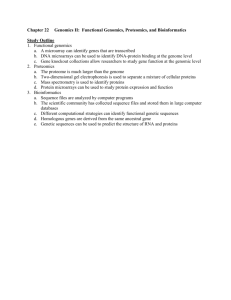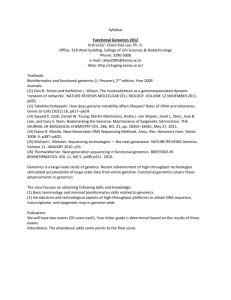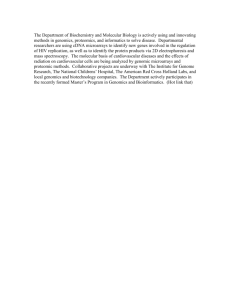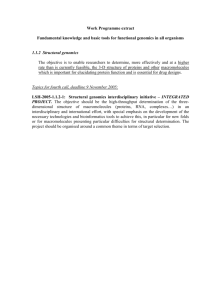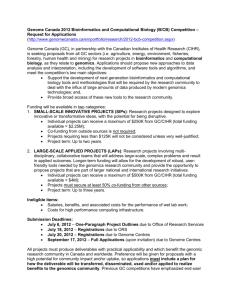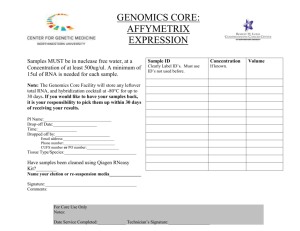Current topics in microbial genomics and bioinformatics
advertisement
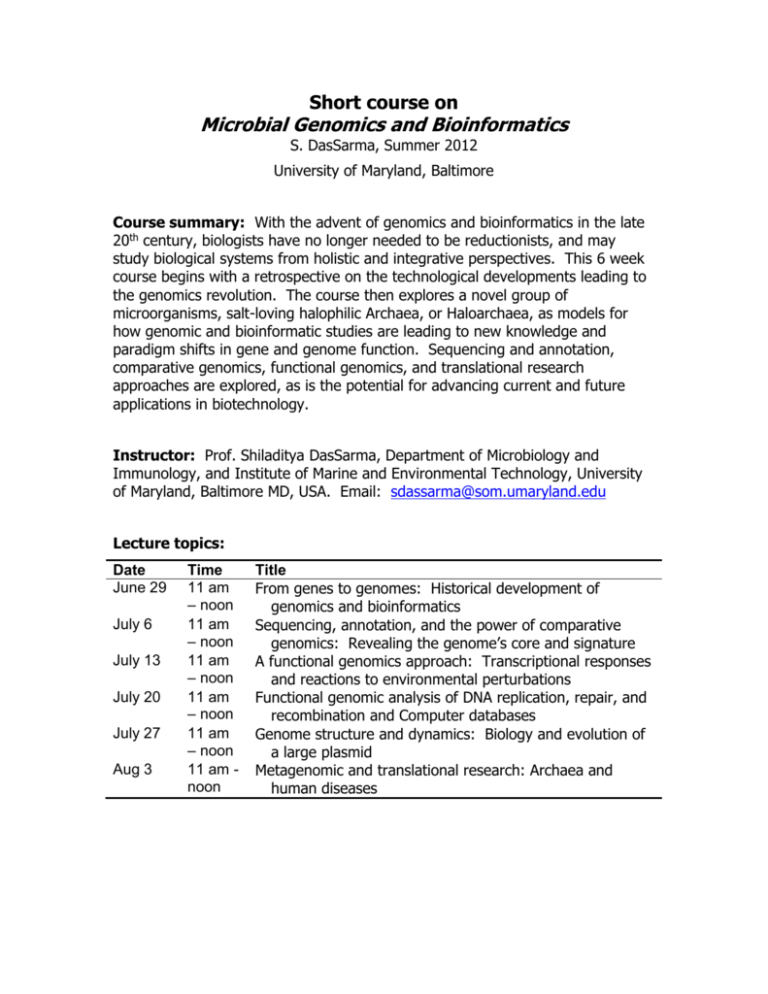
Short course on Microbial Genomics and Bioinformatics S. DasSarma, Summer 2012 University of Maryland, Baltimore Course summary: With the advent of genomics and bioinformatics in the late 20th century, biologists have no longer needed to be reductionists, and may study biological systems from holistic and integrative perspectives. This 6 week course begins with a retrospective on the technological developments leading to the genomics revolution. The course then explores a novel group of microorganisms, salt-loving halophilic Archaea, or Haloarchaea, as models for how genomic and bioinformatic studies are leading to new knowledge and paradigm shifts in gene and genome function. Sequencing and annotation, comparative genomics, functional genomics, and translational research approaches are explored, as is the potential for advancing current and future applications in biotechnology. Instructor: Prof. Shiladitya DasSarma, Department of Microbiology and Immunology, and Institute of Marine and Environmental Technology, University of Maryland, Baltimore MD, USA. Email: sdassarma@som.umaryland.edu Lecture topics: Date June 29 July 6 July 13 July 20 July 27 Aug 3 Time 11 am – noon 11 am – noon 11 am – noon 11 am – noon 11 am – noon 11 am noon Title From genes to genomes: Historical development of genomics and bioinformatics Sequencing, annotation, and the power of comparative genomics: Revealing the genome’s core and signature A functional genomics approach: Transcriptional responses and reactions to environmental perturbations Functional genomic analysis of DNA replication, repair, and recombination and Computer databases Genome structure and dynamics: Biology and evolution of a large plasmid Metagenomic and translational research: Archaea and human diseases
